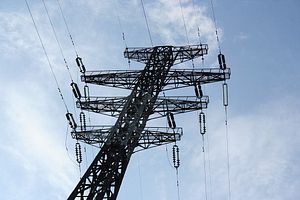For those concerned about the clouds of economic anxiety, Russian revanchism, and bottomed-out hydrocarbon prices swirling around Central Asia, there’s an easy remedy for your pessimism: read through the rhetoric of regional officials. To wit, take a glance at the recent language employed in the meetings between senior officials from Pakistan and Tajikistan, discussing the status of the Central Asia South Asia Regional Electricity Trade Project (CASA-1000).
One of the primary linchpins of the United States’ New Silk Road Initiative, CASA-1000 would transit some 1,300MW of excess summer electricity from Tajikistan and Kyrgyzstan to energy-starved markets in Afghanistan and Pakistan. According to planners, all “of the necessary power generation infrastructure needed for CASA-1000 is already in place” – leaving only transit infrastructure remaining. As such, according to Pakistan’s Daily Times, Pakistani President Mamnoon Hussain earlier this week announced that CASA-1000’s “opening ceremony” would come in May 2016. Per the Times, Hussain lauded the project as a “milestone in boosting relations between Pakistan and Tajikistan.”
Indeed, the meeting comes on the heels of another high-level delegation swelling Pakistani-Tajik ties. A few weeks ago, General Raheel Sharif, Pakistan’s army chief, visited Dushanbe to offer Islamabad’s services in building Tajikistan’s counter-terrorism capacities. While it’s unclear what form new cooperation will take, Tajik President Emomali Rahmon lauded Sharif’s forces, describing them as a “role model for the rest of the world,” according to The Express Tribune.
Still, while Dushanbe and Islamabad have slung praise toward one another and played up a burgeoning friendship over the past few weeks, expansion in their relationship remains relegated to the effusive rhetoric. While there is room for expansion within military cooperation, especially as it pertains to potential training, any excitement about the CASA-1000 ground-breaking remains tempered by realities on the ground. Much like the Turkmenistan-Afghanistan-Pakistan-India (TAPI) pipeline’s recent ground-breaking, the CASA-1000 unveiling will almost certainly provide a fantastic opportunity for shovel-and-smiles photo-ops – but little more.
I’ve detailed the litany of issues buffeting the project – including the threats of “war” from Tashkent as a result of the project’s completion – but a few more issues require inclusion. Firstly, with Moscow’s recent pull-back from Kyrgyzstan’s hydropower projects, the (scant) likelihood of Kyrgyzstan’s participation in CASA-1000 project just saw another major hit. (The move “leaves Kyrgyzstan with bleak prospects for harnessing the country’s huge hydropower potential,” as RFE/RL’s Bruce Pannier wrote.) Secondly, the Taliban’s move to sabotage Kabul’s largest source of power, via a transmission line from Uzbekistan, highlights just how perilous the security situation surrounding CASA-1000 remains.
Of course, like the TAPI pipeline, the realities on the ground haven’t deterred regional officials from plastering optimism on a futile project. If anything, Islamabad may have actually upped the ante: According to the Business Recorder, Hussain noted that a “committee had been formed to prepare preliminary report for additional 1000-1200 MW electricity from Tajikistan to Pakistan outside CASA-1000” – effectively doubling Pakistan’s planned electricity imports from the region. Little matter to those officials that, as Sebastien Peyrouse observed, “the logic of the U.S. government’s New Silk Road (NSR) Initiative” – of which CASA-1000 plays an outsized role – “is not convincingly based on the realities of regional trade between Central and South Asia.” The excited rhetoric from regional officials shows no sign of slowing, regardless of the obstacles that continue piling up.
































